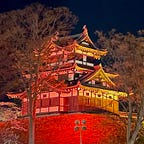The Good Times Were Not Always Good
When stories we tell of our past conveniently forget our guilty parts
An article in the Washington Post tells of an African American family who had identified the exact farm where their ancestors had been enslaved prior to the US Civil War 1861–65. The same family that owned the farm in the nineteenth century remained the owners of the farm today. And, the building where their enslaved ancestors had eked out their existence was still standing near the main farm house.
In the one hundred sixty or so years since their ancestors were freed from their bondage, the African American family had grown and gone on to great successes and achievements including a member becoming a Secretary in the Obama Administration’s Cabinet. Once the farm was located on the map, one of the family members drove up to the house and introduced themselves to the landowners. Eventually, many of the family came to visit as well, in order to see, touch, and feel the reality of their ancestors’ experiences.
The landowners were kind and accommodating toward the family. They didn’t appear to harbour the same prejudices, or at least to the same degree, as their relatives who had gone before them. Yet, an awkward realization to confront that your family and home had been used to enslave people, and here were those people.
If it were our families that had suffered in such a situation, how would we feel in this “homecoming” of sorts? The strange realization of how difficult their ancestors’ lives must have been, how much they had to overcome, how unfair/unjust this all had been. And, imagine how you might have felt if the landowners/family were unapologetic or had sought to deny the well-documented evidence? The bitterness and frustration would have been palpable, without doubt.
Taking this story out of the United States and placing it into another context, how would you imagine that Chinese, Korean, or Taiwanese might feel coming from similar, much more recent, impressed labour situations in Japan, Korea, Manchuria, Taiwan, and many islands formerly claimed as Japanese territories before, during, and after WW2? These memories are not very distant and the wounds are not forgotten.
A new Apple TV fictional drama, Pachinko, tells a story of Koreans leaving Korea for Japan during this time. The subjugation of their language and their culture both in Korea as well as in Japan is portrayed. It is also a multi-layered cake as the story switches between pre-WW2 Korea/Japan and Korea/Japan of 1989. It is a viewpoint not often considered.
In 2022, there continues to be a diaspora of Koreans, for instance, who live on Sakhalin Island in Russia. They worked for the Japanese as laborers prior to the Soviet army seizing the island from Japan at the end of WW2. These Koreans were trapped on Sakhalin as they had no passports nor official documents to prove they were, in fact, Koreans. They had gone to a Japanese territory where no passports had previously been necessary and found themselves stuck in a far away place with no documents. So, they remain today living in Russia maintaining their language and culture while hoping one day to be allowed to repatriate to South Korea from Russia.
In a moment of time where a new Korean President has been elected and seeks a new rapprochement with Japan, it seems like it is time that Japan considers the consequences of the not-so-distant past is worthy of thought, reflection, and sympathy. The future of East Asia can be rewritten through humility, optimism, and common bonds or crossed arms and bitterness.
